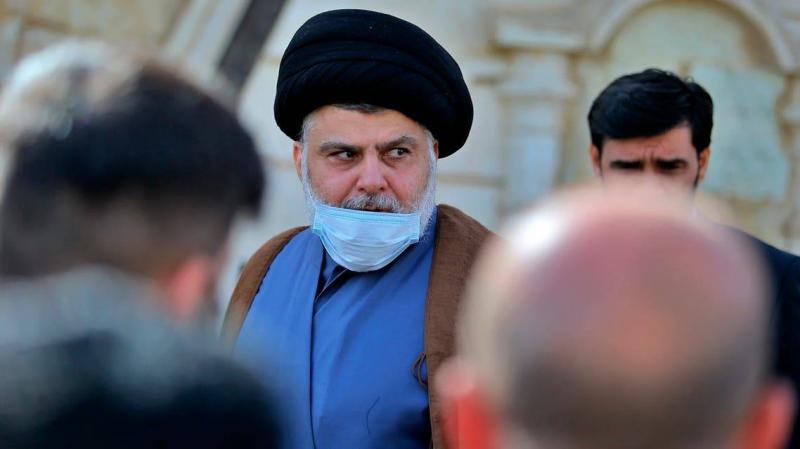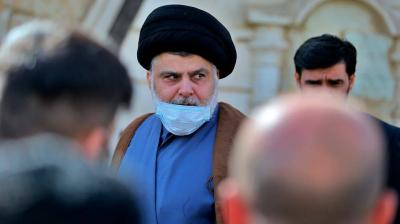Meetings are ongoing behind the scenes aimed at reaching a consensus to bring the new Iraqi government to light. Sources told Al Arabiya/Al Hadath on Sunday that a meeting was held at night between the leader of the Sadrist movement, Muqtada al-Sadr, and the leader of the Fatah Alliance, Hadi al-Amiri, to discuss the government formation issue.
Information clarified that Sadr insists on forming a "national majority" government, as he describes it, without considering any other option. He considered any talk of forming a consensus government akin to suicide.
**Excluding Maliki**
The Sadrist leader reiterated his insistence on excluding representatives of former Prime Minister Nouri al-Maliki (who, through his party "Dawa," is part of the coordination framework). He hinted to al-Amiri, according to sources, that the doors for government formation are open to the coordination framework if they abandon Maliki.
These developments come as the coordination framework is expected to meet in the coming hours at the home of former Prime Minister Hadi al-Amiri to discuss the outcomes of the al-Amiri and Sadr meeting.
In recent days, tensions have escalated between Sadr and some Iran-aligned parties within the coordination framework, especially after the Shiite leader's agreement with the "Progress" Sunni bloc, led by Muhammad al-Halbousi, to elect the latter as President of the Iraqi Parliament for a second consecutive term. However, the primary reason for this tension remains the government formation issue, which Sadr insists must represent the winners of the parliamentary elections held on October 10, which showed a significant decline in seats for the Fatah Alliance (close to Iran), while Maliki's bloc secured over 30 seats.
**No Place for Losers in Government**
Prominent Sadrist member Riyad al-Masoudi stated regarding the Iranian camp, "Let’s be realistic and simply say... the losers (in the elections) do not form the government." He added, according to Reuters, "There is a strong front comprising (the Sadrist movement), all of the Sunnis, and the majority of the Kurds, as well as many independents capable of electing... a new government in a short period."
**Violent Responses**
However, the exclusion of the Iranian camp from the next government could provoke violent reactions from those harmed, as noted by several observers. Legal expert and political analyst Ahmed Younis stated that "the Sadrists are moving towards forming a national majority government," while he anticipated that the opposing parties would do everything in their power to avoid losing their political control in the country.
A source in the Iraqi government, who requested anonymity, told Reuters that members of the Iranian camp are expected to use threats of violence to gain a place in the government; however, he believed they would not escalate violence into a full-scale conflict with Sadr.
**A Dangerous Gamble**
Despite this, many observers warn that Sadr's insistence on marginalizing Iran-aligned parties and their armed factions could be a dangerous gamble. In this context, political analyst Toby Dodge from the London School of Economics questioned, "Is Sadr prepared for the violent backlash he might face?" He also noted that threats of violence from armed factions are increasingly common as Sadr maintains his position, stating, "This is a scary moment!"
It is worth mentioning that Sadr won 73 parliamentary seats, more than any other faction in the fragmented council comprising 329 seats. Thus, a new government must now be formed to succeed Mustafa al-Kadhimi's government, usually through the largest bloc. However, the process is not without complications, as typically one movement in the country cannot monopolize executive power, leading the victor to generally attempt to share power with other movements and factions.
The question remains: "What does Sadr have in store for the coming days?!"




